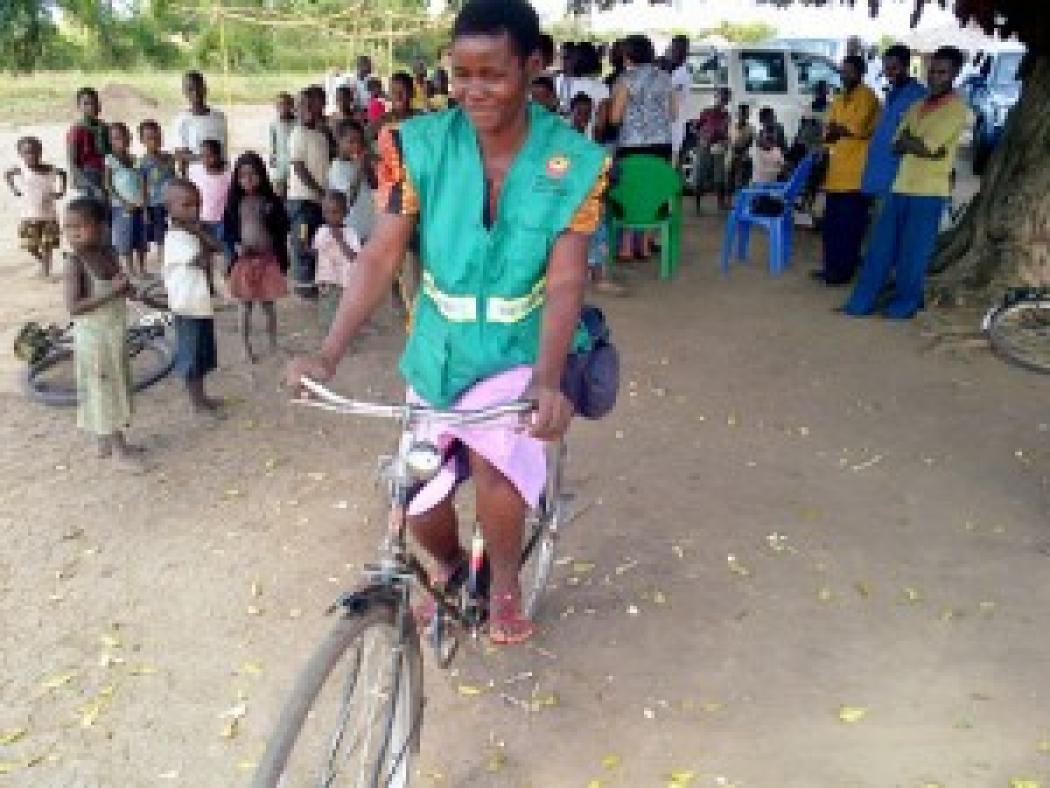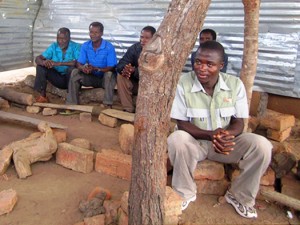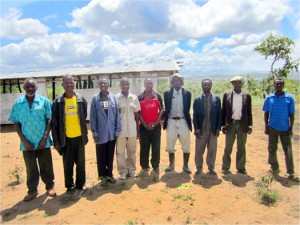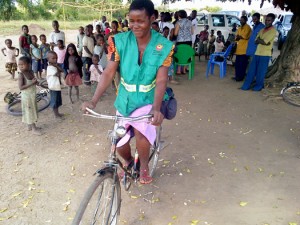Supporting Sons and Daughters in Mozambique: Revitalizing a Community Health Worker Program

By: Carol Bales and Rachel Deussom, IntraHealth International
The local people call him “the son of the community.” On the verge of tears, he listens as they proudly say, “The dust will fly even if it’s raining, because we will be dancing.”
The young man is a newly trained agente polivalente elementar, a type of community health worker in Mozambique. At a community meeting in Tete Province, his neighbors are describing how they will celebrate when he receives his health worker kit and begins serving his community.
In Mozambique, the Ministry of Health is counting on these workers to provide basic health services to people in the most remote communities. Due to the country’s severe shortage of physicians, nurses, and midwives, many people don't have regular access to basic care, and their health has suffered.
Expanding access to health services
In the 1970s, soon after independence, the Ministry implemented a national community health
program that introduced the agentes polivalentes elementares. The program was interrupted in the 1980s during the armed conflict. Acknowledging international evidence on the vital role community health workers can play in expanding basic health services and meeting health goals, the Ministry and its partners decided to revitalize the program in early 2010.
Community health workers usually act as a point of referral that supports both the community and the formal health system. In Mozambique, they also educate communities on family planning and HIV prevention, counsel pregnant women, identify and manage childhood pneumonia and diarrhea, test for and treat malaria, and provide grassroots support to HIV/AIDS and tuberculosis treatment programs.
Providing in-country support
The USAID-funded CapacityPlus project, led by IntraHealth International, provided support to roll out the program to the provinces and districts. Key to this was hiring in-country staff to establish operational procedures and policies and coordinate working groups tasked with developing training materials, creating monitoring and supervision tools, and standardizing Medicine and Work Kits that include a bicycle and essential supplies.
CapacityPlus also worked with USAID’s Health Systems 20/20 project to design a performance-based incentives plan for program coordinators who are working to expand the program. In addition, CapacityPlus worked with the Ministry to design and implement a baseline survey to measure program impact.
Building local skills
Scaling up community health worker programs requires strong leadership, political backing, and resources. These workers need to receive adequate management and professional support from the formal health system and be appropriately compensated for their work.
Sandra McGunegill lives in Mozambique and served as CapacityPlus’s senior technical advisor to strengthen coordination of the program. She worked daily with Teresa Mapasse, the national coordinator, increasing her capacity to effectively plan and communicate about the program and supervise provincial coordinators.
As a result, Mapasse now regularly gives presentations to the minister of health and others to engage partners and build political support. She coordinates community health worker training and subsidies, Medicine and Work Kit distribution, program monitoring and evaluation, and the development of Community Health Committees to drive local ownership and involvement.
An insider’s view
McGunegill relays what she heard a community leader say during the meeting in Tete: “Too often, pregnant women infected with malaria were seen riding on the back of a bike, vomiting as they are rushed to the health center.” She glances at her photograph of the new community health worker and adds, “It made it all worthwhile to hear the leader go on to say that now community health workers like this man can test for malaria in the community and distribute medication—and lives will be saved by receiving earlier treatment.”
More than 1,200 agentes polivalentes elementares have been trained to work in 50 districts. There are plans to train another 1,500 in the coming year. This means that many more sons and daughters of Mozambique will be working on the frontlines to offer health services to their communities.
Photos by Sandra McGunegill, courtesy of CapacityPlus/IntraHealth International.



